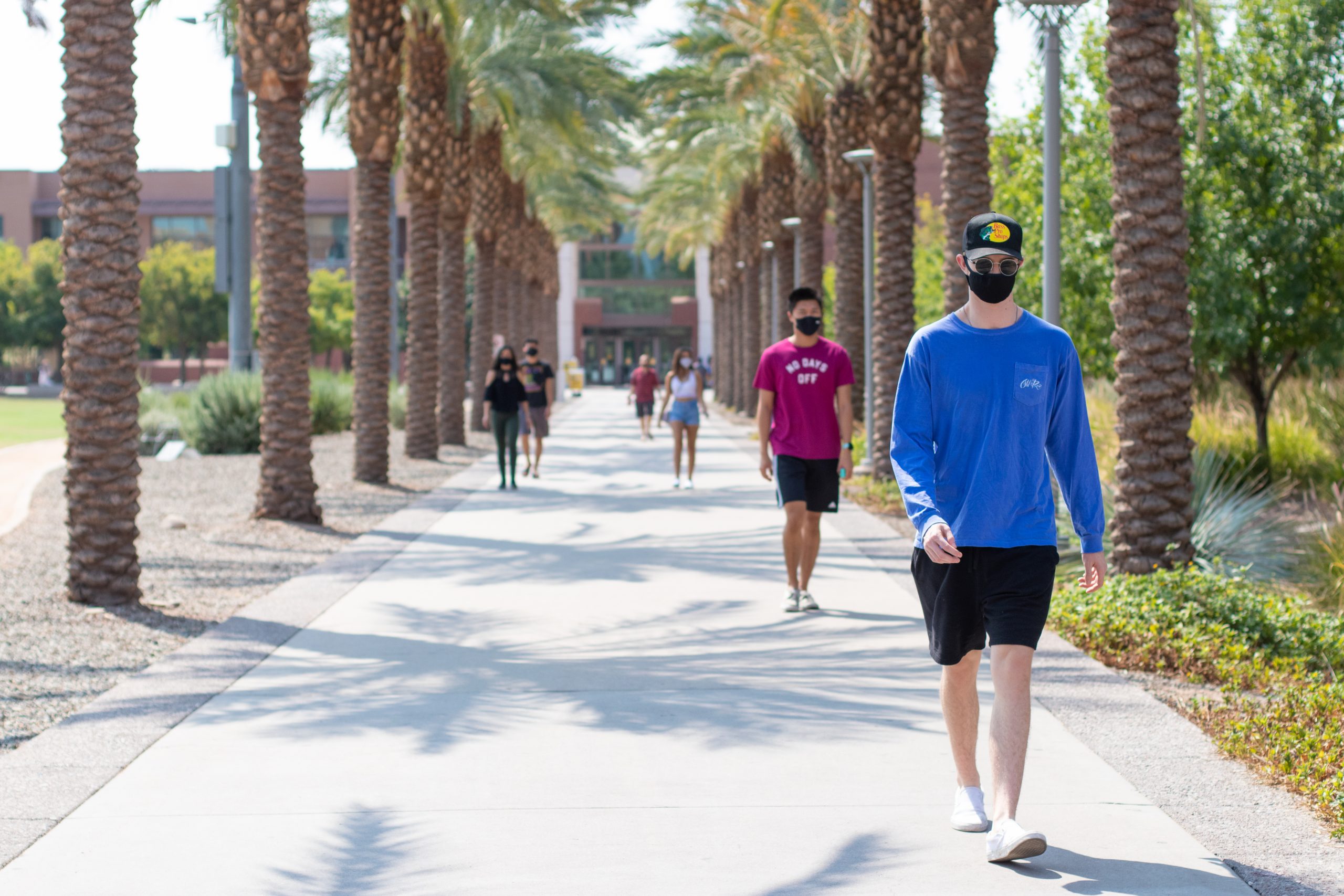Arizona State University researchers are working on a home-based coronavirus test that could deliver results within 10 minutes rather than 24 to 48 hours, university officials said Wednesday.
Researchers want to create a rapid, saliva-based coronavirus test that can “quickly determine whether the virus is present,” said Dr. Joshua LaBaer, director of the ASU Biodesign Institute, which is overseeing its COVID-19 research and testing efforts.
Results of coronavirus tests conducted at university locations come back within a day or two, he said. He spoke about the research in answer to a question about potential tech advances, part of a regular coronavirus update session. LaBaer – who emphasized that research is in the early stages – said the goal is to develop a device that can be distributed for home use. He said researchers are “developing a device that has lab-on-a-chip technology.”
During the update, ASU leaders also said the number of people who have tested positive for the virus has remained steady since Labor Day, but the next seven days will determine whether the long weekend led to a rise in overall cases.
“There’s often a two-week lag from when exposures occur to when until when you actually see the outcome,” LaBaer said. “That was really highlighted well in the Memorial Day data. It does take a couple weeks for these effects to be seen.”
Unlike the University of Arizona, spokesperson Jay Thorne said, ASU is not encouraging students to shelter in place.
“At the moment,” LaBaer said, “ASU has a clear plan for how it wants to manage its students and we’re already doing that.”
ASU’s COVID-19 numbers were questioned last week by news organizations, critics on social media and university advocacy groups because they only included active cases. That led to some confusion, with positive cases appearing to drop from a previous week. The school has since added cumulative numbers to its COVID-19 management strategy report.
As of Sunday, Sept. 13, ASU’s coronavirus website reported 486 total positive cases: Eight among 12,400 faculty and staff members, and 478 among 74,500 students, which excludes online students.
The school’s cumulative totals on individuals who are no longer positive and were cleared for release include 1,139 students and 144 faculty and staff members. The latter number includes ASU employees who tested positive before Aug. 1.
Northern Arizona University reports 96 cases of COVID-19 among students as of Sept. 11, while the University of Arizona reported 172 cases as of Sept. 15. UArizona has had 1,583 positive cases since Aug. 4, with students strongly urged to shelter for two weeks, ending Sept. 29.
The school’s shelter in place guideline asks students to stay in their rooms except for attending essential in-person classes, seeking medical treatment, COVID-19 testing, going to work or getting food close to where they live.
ASU remains confident in the effectiveness of its procedures and will not be following Arizona’s example, Thorne said, referring to President Michael Crow’s decision.
“Dr. Crowe’s answer is ‘No, we’re not doing that. We’re not considering that. We have our own strategy,’” Thorne said.
LaBaer said the entire state, despite a small rise in coronavirus cases since Monday, has seen consistent numbers overall since Labor Day on Sept. 7.
LaBaer said Arizona is “doing better than some of the other big states that have had issues,” such as Florida, which has had more than 660,000 positive cases.
Still, he cautioned, “it’s very hard to pinpoint trends when there are lots of variables changing all simultaneously.” He encouraged testing for people who suspect they‘ve been exposed to COVID-19 or work at a job that requires them to interact with new people every day.
“It would not be unreasonable to go to one of the free public testing sites and get tested,” he said.
Story by Sierra Poore, Cronkite News




